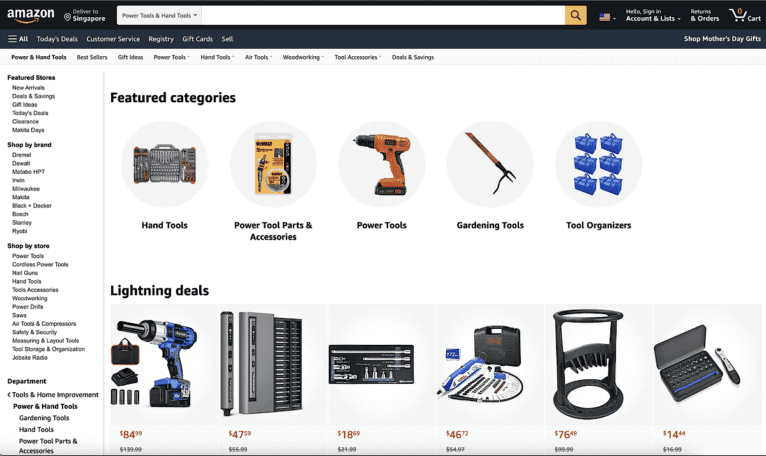Keyword research is one of the essential aspects of any successful digital marketing campaign. It’s a crucial step that helps you understand what your target consumers are searching for and how you can best optimize your content to meet their needs.
Whether you’re new to keyword research or looking for ways to up your game, there are several powerful tools available to help streamline the process.
In this article, we’ll explore some of the top keyword research tools available today and provide insights on how beginners can make the most out of these tools. By mastering these techniques, you’ll be better equipped to create highly optimized content that resonates with your audience and drives business growth.
Understanding Keyword Research: A Beginner’s Guide
Understanding keyword research is crucial for any digital marketer or website owner looking to attract and engage with their target audience. Effective keyword research involves identifying the most relevant and high-traffic search terms that your potential customers are using when exploring products, services, or general topics related to your business.
By leveraging top keyword research tools available today, you can streamline your SEO efforts by narrowing down the best-fit keywords for your content creation process. This includes identifying long-tail keywords – more specific phrases incorporating multiple search terms – that will help capture targeted traffic on different platforms like Google and Bing.
As a beginner in keyword research, it’s important to understand how common strategies like assessing competitors’ ranking positions or checking out Google autocomplete suggestions can be helpful.
With a little guidance from experts in the field combined with access to cutting-edge tools like Keyword Planner, Ahrefs Keywords Explorer, SEMRush Keyword Magic Tool, and others mentioned in this article; you’ll be well-equipped to get an edge in competitive niches while also maximizing your online visibility. So start mastering these techniques today!
Utilizing Google Keyword Planner for Effective Research
The Google Keyword Planner is one of the most widely used tools for keyword research to date. It’s a free tool that allows users to search for keywords and phrases related to their target audience, giving them valuable insights into what their competitors are ranking for on search engines like Google.
With this information, you can generate new ideas for content creation and optimize your website pages accordingly. Using the Google Keyword Planner is easy – simply create an account (if you don’t already have one) and input your desired keywords or phrases.
The tool will then provide you with data on the average monthly searches, competition level, and suggested bids per click (CPC) for each keyword. This information is vital in helping digital marketers identify high-traffic keywords they should focus on using in their content.
In conclusion, utilizing Google Keyword Planner as part of your keyword research strategy goes a long way in ensuring effective targeting of your audience through optimized content creation. The ability to explore new keyword ideas while keeping tabs on competition paves the way toward successful SEO practices that ultimately lead to increased website traffic and improved online visibility over time.
Exploring Long-Tail Keywords with Keyword Tool
Long-tail keywords are an essential part of effective keyword research. They’re longer and more specific keyword phrases that attract highly targeted traffic, making them a valuable asset for any digital marketer or website owner. With the right long-tail keywords, you can improve your search engine rankings and drive more organic traffic to your site.
One useful tool for exploring long-tail keywords is the Keyword Tool. It’s a free online tool that generates hundreds of relevant long-tail keywords based on your inputted seed word or phrase.
This tool analyzes Google Autocomplete data as well as Google Ads and other databases to generate up to 750 suggested phrases related to what people search in relation to the seed word after browsing on Google.
With its simple interface, you just need to insert any term related (as possible) witoour page content so it will show you all potential options for header tags applying these concepts – this can be done even without access or experience with Google Ads account information- The generated list includes terms often used by users searching within niche areas including products and services because finding words first is one of mothe st important things when creating ad campaigns on social media platforms such as Facebook Ads, which requires vast knowledge about audience targeting techniques matching interests from multiple unique communities across different regions worldwide.
Analyzing Competitor Keywords with Ahrefs
Analyzing competitor keywords with Ahrefs is one of the most effective methods to optimize your content and rank higher in search engine results. With Ahrefs, you can identify the keywords that your competitors are ranking for, giving you a clear picture of what kind of content works well in your niche.
By analyzing these keywords, you can adjust your keyword strategy to better match customer demand and outrank your rivals. The process is simple: enter a competitor’s website into Ahrefs’ Site Explorer tool and navigate to the Organic Keywords report.
This will give you a list of all the organic searches that have led users to their website along with important metrics like search volume, difficulty level, CPC value, and other useful data points.
You can then filter this list by different parameters such as location or language according to targeting requirements on top of observing what competitors do best before identifying the gaps for improving SEO performance.
Overall, using Ahrefs for competitor keyword analysis enables marketers both novice and adept alike with insights into potential new traffic sources they may not have considered previously – which makes it an essential tool in any digital marketer’s toolkit!
Maximizing Keyword Potential with SEMrush
SEMrush is one tool that stands out when it comes to maximizing keyword potential. With its broad suite of features, SEMrush offers a comprehensive approach to analyzing and optimizing your website’s content for the best possible search engine results.
One standout feature is its Keyword Magic Tool, which allows you to find specific keywords related to your business and helps you determine their effectiveness in driving traffic and conversions. Another valuable tool within SEMrush is the Position Tracking feature, which enables you to monitor how your chosen target keywords are performing over time. B
y tracking changes in position as well as competitor activity for those same keywords, you can gain unique insights into how best to optimize your site’s content for optimal search engine rankings.
Overall, there are many great tools available today aimed at streamlining keyword research efforts both for beginners and experienced marketers alike.
However, mastering the use of SEMrush can give businesses an edge because it provides unparalleled insight into what customers are searching for and how they’re interacting with competing sites to stay ahead of changing trends in this ever-evolving landscape of digital marketing competition.
Harnessing the Power of Keywords with Moz Pro
Moz Pro is a powerful tool that can help you harness the power of keywords to drive better marketing results. It offers a range of features and functionalities that allow you to identify high-value keywords, optimize your content for search engines, and track your progress over time. With its intuitive interface and robust analytics capabilities, Moz Pro can be an invaluable asset for marketers who are looking to maximize their ROI through keyword research.
One of the key benefits of using Moz Pro is its ability to provide comprehensive keyword data on both organic and paid search channels. This allows you to gain deep insights into your target audience’s search behavior, which in turn enables you to create more valuable content that resonates with them.
Additionally, Moz Pro provides detailed metrics on important SEO factors such as domain authority and keyword difficulty score, which can help you make informed decisions about where to focus your efforts.
Overall, if you’re looking for a powerful tool that can help take your keyword research game to the next level, Moz Pro should be on your radar. With its advanced functionality and user-friendly interface, it’s sure to become an essential part of any successful digital marketing campaign.
Best Practices for Keyword Research and Implementation
When it comes to keyword research and implementation, there are a few best practices that can help you achieve success. First, it’s important to focus on long-tail keywords rather than generic terms because they tend to be more specific and have less competition.
It’s also essential to conduct thorough research before choosing your keywords so that you can select the ones that align with your goals and target audience.
Once you’ve selected your keywords, it’s crucial to implement them strategically throughout your content.
This involves incorporating them into all aspects of optimization, including titles, meta descriptions, header tags, and body copy. However, avoid overstuffing them as this will not only hurt user experience but may even lead search engines to penalize or overlook your website altogether.
Overall, mastering keyword research requires time and effort but reaps tremendous benefits in terms of driving traffic and generating leads for your business.
By following these best practices outlined above while utilizing top tools available in the market today— Google Keyword Planner and SEMrush being two popular contenders —your campaigns will likely yield fruitful results sooner than later!





